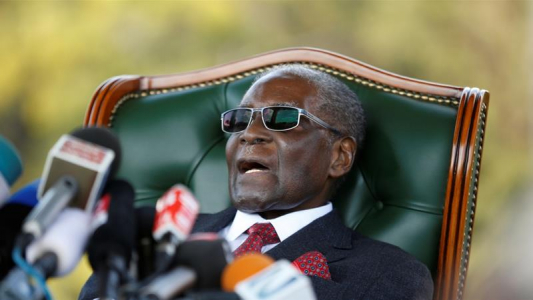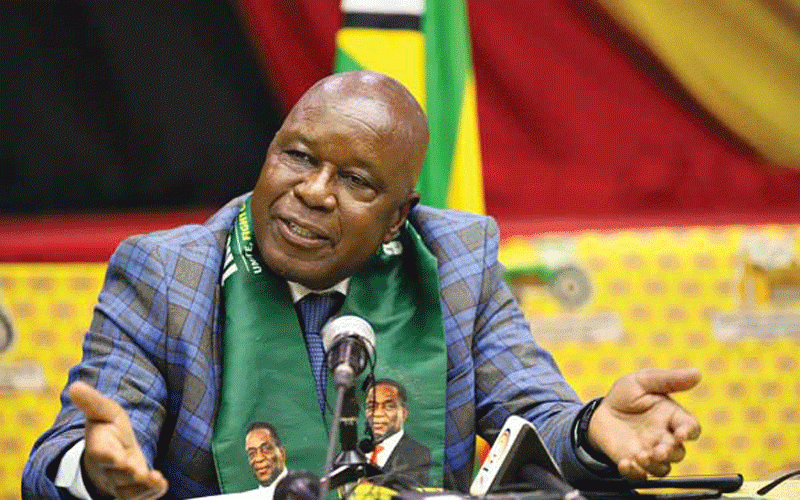
guest column Paidamoyo Muzulu
“Friends, Romans, countrymen, lend me your ears; I come to bury Caesar, not to praise him. The evil that men do lives after them; The good is oft interred with their bones; So let it be with Caesar,” Mark Anthony in Julius Caesar.
So it is with Robert Mugabe who died peacefully in Singapore last Friday. Mugabe, the first post-independence leader straddled Zimbabwe’s politics like a colossus; his shadow hovered over everything, making him many things to many people at the same time for 37 years.
Historians will return their verdicts on Mugabe’s legacy in their books. It is not far-fetched to say we will have varied views of the man; from being a liberator to pan-Africanist, socialist as he described himself in a 1997 BBC HardTalk interview from those charitable to him. At the other extreme, Mugabe would be remembered as the dictator, butcher of his own people and the man who wreaked havoc on Zimbabwe’s economy and left the southern African nation a pariah State.
Many people before me have written their thoughts about Mugabe’s rule, but for variety and another perspective I would concentrate on the now and the future rather than reflecting on what happened, not that it does not matter, but because after all is said and done we still have to navigate ourselves out of this mess.
Nearly two decades ago Mugabe had changed Zimbabwe’s foreign and economic policies towards closer co-operation with China and other different Far East countries after relations with the West had deteriorated. The policy became known as the Look East policy.
The policy came as the European Union and the United States imposed sanctions on Zimbabwe following Mugabe’s fast-track land reform programme that drove off more than 4 000 white commercial farmers off the land without compensation.
The sanctions have created a rift even among international players. Knox Chitiyo a researcher at Chatham House says: “It has also proved more widely to be contentious between the African, international and Western policymakers, as was demonstrated when China and Russia vetoed a proposal for a UN Security Council resolution seeking sanctions on Zimbabwe.”
- Chamisa under fire over US$120K donation
- Mavhunga puts DeMbare into Chibuku quarterfinals
- Pension funds bet on Cabora Bassa oilfields
- Councils defy govt fire tender directive
Keep Reading
It is this support from China and Russia that strengthened Mugabe’s Look East policy. A Chinese scholar Zhang Chun wrote extensively on China-Zimbabwe relations in a South African Institute of International Affairs journal (2014).
“Confronted with these challenges (sanctions), Zimbabwe adopted its Look East policy in 2003. In terms of this policy Zimbabwe prioritised its relationship with countries such as China, Singapore, Iran, Indonesia, India and Malaysia, broadening the scope of its foreign policy,” Chun wrote.
This could in some measure explain why Mugabe died in Singapore. I digress.
However, Chun makes an interesting observation why Zimbabwe looked East. “China has played a critical role in Zimbabwe’s political crisis for three reasons: Its veto power in the UN Security Council; its own developing country status; and its non-interference policy.
“As Zimbabwe began to face increasing economic and political turmoil, its relations with China became more pragmatic and commercially oriented, grounded in the principles of sovereignty and non-intervention in one another’s internal affairs,” he wrote.
Zimbabwe continues to bear the political and economic strain of sanctions from the United States, nearly two decades after they were imposed. Despite the United States changing presidents (Barack Obama and Donald Trump) there is no rush in the West to lift the sanctions even when Mugabe was ousted in a coup nearly two years ago.
While President Emmerson Mnangagwa’s administration has put re-engagement as its top priority foreign policy, for now it seems to be reaching a dead-end as the West continues to pile pressure for political and constitutional reforms as a prelude to the country’s readmission into the family of nations.
Meanwhile, the Chinese continue to court Zimbabwe and Africa with President Xi Jinping, at Beijing FOCAC Summit in 2018, saying: “We support the building of the African Continental Free Trade Area and we will continue to hold free trade negotiations with interested African countries and regions. We will set up relevant mechanisms to promote e-commerce and co-operation in Africa.”
China is running its effort under the Belt and Road Initiative that seeks to improve infrastructure, energy and agriculture in Africa. Can Zimbabwe benefit from this initiative? Yes it can, depending on how smart Zimbabwe leaders are during negotiations. The country can benefit from infrastructure such as railways, roads, airports (which it has if one considers upgrades at Robert Mugabe and Victoria Falls international airports) and in the energy sector (some development has been noted at Hwange Thermal Power Station and at the Kariba South Hydro-electrical Power Station).
It should be noted that China has set aside US$120 billion under FOCAC for investment in Africa in the past five years. Some countries have benefitted more, for instance in Kenya the Mombasa-Nairobi railway, the Addis Ababa light rail project and Bole International Airport expansion in Ethiopia and South Africa has also been part of the game.
Zimbabwe could also take advantage of the Chinese-United States tariff war and supply agriculture products such as meat, oranges and soya that the Asian giant imports from US. It only needs having an aggressive marketing strategy and calculated negotiations from the Zimbabwe team to unlock this potential.
Chitiyo (ibid) also noticed the West is ruing lost opportunities and receiving pressure from its businesses, who say they have now missed opportunities in the last decades.
“Since the 2013 elections, Western powers have found themselves caught between those who maintain that lifting the remaining sanctions would endorse the State’s flawed human rights and elections record, and business voices highlighting the missed opportunities if Zimbabwe pursues a Look East alternative,” Chitiyo said.
Is Mnangagwa ready to pursue the Chinese low-hanging diplomatic fruit and build on Mugabe Look East initiative? Or is he trying to pursue the re-engagement with the West? Or Mark Antony wins again, “The evil that men do lives after them; The good is oft interred with their bones.”











